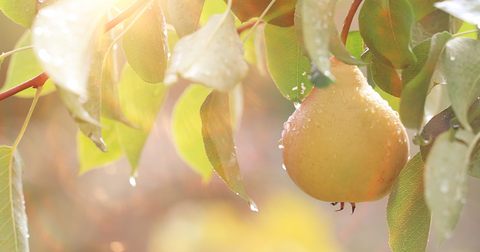The Beloved Banana: A Staple in Filipino Diet
Bananas have a rich history in the Philippines, dating back centuries to when they were introduced by early traders and explorers.
Today, they are a staple in the Filipino diet, enjoyed in countless ways. Whether eaten fresh, fried, boiled, or incorporated into a variety of dishes, bananas provide essential nutrients and energy to Filipinos.
These versatile fruits are an excellent source of vitamins and minerals, particularly potassium, vitamin C, and vitamin B6. They are also high in dietary fiber, making them a healthy and filling snack option.
The Common Banana Varieties
Banana Lakatan
Lakatan bananas are popular for their sweet taste and distinct aroma. They are commonly eaten fresh and are a favorite among Filipinos for their dessert-like quality.
The soft and creamy texture of Lakatan bananas makes them ideal for making banana shakes and smoothies.

Banana Latundan
Latundan bananas are known for their sweet taste and creamy texture. They offer a nutritional boost with high fiber, potassium, and Vitamin C. A versatile fruit, perfect for snacking, breakfast, or adding natural sweetness to recipes.
Saba Banana
Saba bananas are a type of cooking banana, usually larger and starchier than other varieties. They are a key ingredient in Filipino dishes like "sinigang na saging," a savory banana stew, and "turon," a sweet snack made by rolling them in sugar and wrapping them in spring roll wrappers.
Saba bananas are commonly used in cooking, especially for making banana cue, a popular street food where the bananas are caramelized with sugar and skewered on sticks.

Senorita Bananas
Senorita bananas are small and sweet, often compared to the flavor of honey. They are usually consumed as a snack and are a popular choice for making banana fritters or "maruya."
Bungulan Bananas
Bungulan bananas are known for their bright yellow skin and slightly tart taste. They are frequently used for cooking and can be found in dishes like "ginataang halo-halo," a dessert made with coconut milk and various sweet ingredients.

Morado Bananas
Morado bananas are distinguished by their purple skin. They have a sweet flavor with a hint of tanginess. These bananas are commonly used in dessert known for their striking color when cooked.

Ambon-ambon Banana
Ambon-ambon bananas are named for their soft and sticky texture. They are often used to make "kakanin," a traditional Filipino rice cake, as their texture adds a unique touch to these desserts.
Cardaba
Cardaba bananas are versatile and can be consumed either fresh or cooked. They have a slightly tangy taste and are used in a variety of Filipino dishes, including "turon" and "maruya."

Exotic Banana Varieties
In addition to the more common and lesser-known banana varieties, the Philippines is also home to some truly exotic and unique bananas that are worth exploring.
Abacá (Manila hemp banana) is not typically consumed as a fruit but is valuable for its fiber, which is used in making Manila hemp, a type of textile known for its strength and durability.
Burro bananas, also known as apple bananas, have a tangy flavor and are often compared to the taste of apples. They are a favorite for snacking and making smoothies.
Blue Java bananas, often called "Ice cream bananas," are known for their sweet and creamy flavor. They are enjoyed for their dessert-like taste and are perfect for making banana ice cream or enjoying fresh.

Banana Conservation and Biodiversity
Preserving the biodiversity of banana varieties in the Philippines is essential to ensure food security and cultural heritage.
The country's rich banana diversity faces threats from diseases and commercialization. Organizations and initiatives are working to protect and conserve indigenous banana varieties, ensuring they continue to thrive for future generations.
Conclusion
Bananas are not just a fruit in the Philippines; they are a symbol of cultural heritage, culinary delight, and agricultural significance.
The 12 banana varieties we discussed in this blog exemplify the incredible diversity of bananas found in the Philippines, each with its own unique taste and culinary applications.
Whether you prefer the sweet and creamy Lakatan or the exotic Blue Java banana, there is no shortage of options to explore and savor in this tropical paradise.
So, next time you bite into a banana in the Philippines, take a moment to appreciate the rich tapestry of flavors and history that this humble fruit represents.
Order Banana Now
Explore the Philippines' diverse banana varieties with Ecosprout's curated selection. From the sweet Lakatan to Saba, visit our website to taste the rich flavors of the Philippines and support sustainable agriculture.





